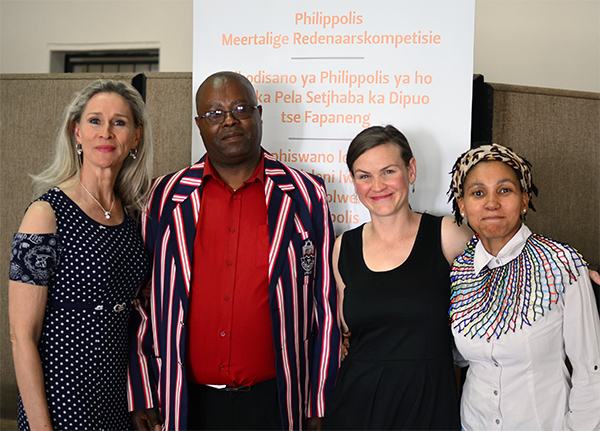Latest News Archive
Please select Category, Year, and then Month to display items
12 October 2020
|
Story Dr Cindé Greyling
|
Photo Supplied
 Exercise and nutrition can work wonders for your mental health – you don’t even have to ‘feel like’ or ‘enjoy’ moving around and eating well for it to work – it does its thing anyway.
Exercise and nutrition can work wonders for your mental health – you don’t even have to ‘feel like’ or ‘enjoy’ moving around and eating well for it to work – it does its thing anyway.
Nowadays, people talk about mental health like it is the common cold – which is good! But do you know what it really means? Being mentally healthy does not only refer to the absence of a mental illness but includes your emotional and social well-being. One would almost want to add physical well-being too, since a healthy body does indeed support a healthy mind. However, since so many people consider themselves ‘mental health experts’, some myths have been sold as truths.
Myth #1 – You are doomed.
Nope. Never. You are never doomed. There is always help. Mental-health therapies range from self-help, talk therapy, medication, to hospitalisation in some cases. Somewhere on this spectrum of treatments, there will be something that works for you. But you must be willing to get the help and do the work. For starters, exercise and nutrition can work wonders – you do not even have to ‘feel like’ or ‘enjoy’ moving around and eating well for it to work – it does its thing anyway.
Myth #2 – It won’t affect you.
It may. Research suggests that one in five people may suffer from a mental illness at some point in their lives. Being well now does not mean that it will stay that way. Biological and environmental factors both impact your mental health. Hopefully not, but at some point, you may experience an event that affects your mental health.
To remain integrated in a community is always beneficial
for anyone suffering from a mental or physical condition.
Myth #3 – Someone struggling with mental health must be left alone.
Hardly! To remain integrated in a community is always beneficial for anyone suffering from a mental or physical condition. You do not need to fix them, but to remain a friend. Continue to invite them, even if they decline. Do not judge, and do not try to understand. Just stay around.
Go and be kind to yourself, and to those around you.
Competition emphasises value of mother-tongue education
2017-11-02

At the recent Multilingual Debating Competition were, from the left: Anita Muller,
local facilitator; William Magwa, master of ceremonies; Dr Chrismi-Rinda Loth,
project coordinator in the Unit for Language Facilitation and Empowerment; and
Mabatho Ntsieng, project facilitator in Community Engagement.
Photo: Supplied
The Multilingual Public Speaking Competition has been an annual event in Philippolis since 2013. The competition was established as a result of the Multilingual Information Development Programme (MIDP), a project sponsored by the province of Antwerp in Flanders, Belgium.
The competition is jointly hosted by the Unit for Language Facilitation and Empowerment (ULFE) at the University of the Free State (UFS) and the Department of Community Engagement, also from the UFS.
Debating in your home language
Grade 6 to 9 learners from four schools participated in this year’s competition. Bergmanshoogte Intermediate School, Madikgetla Primary School, Williamsville Primary School, and Springfontein Primary School each entered their three best speakers per grade.
Olerato Tshiloane, a Grade 7 learner from Madikgetla Primary School, was named best speaker overall.
Everyone debated on ‘Heritage’
The overall theme of this annual event was ‘Heritage’. Thirty six learners debated in their mother tongue on aspects of this theme, such as its definition, the role it plays in their lives, and the importance thereof. According to Dr Chrismi-Rinda Loth from ULFE, learners have to present their speeches in their mother tongues. “This emphasises the value of the mother tongue/home language within a teaching context,” she says.
This year’s competition saw 20 Afrikaans speeches, 13 in Sesotho, and three in isiXhosa. The multilingual adjudication panel was composed of teachers from the participating schools, and the head adjudicator from the Afrikaanse Taal- en Kultuurvereniging (ATKV). The ATKV is a partial sponsor of the competition and also provides the participation certificates.
Dr Loth says ULFE and Community Engagement are looking forward to continue their collaboration, thus contributing to the empowerment of the community.